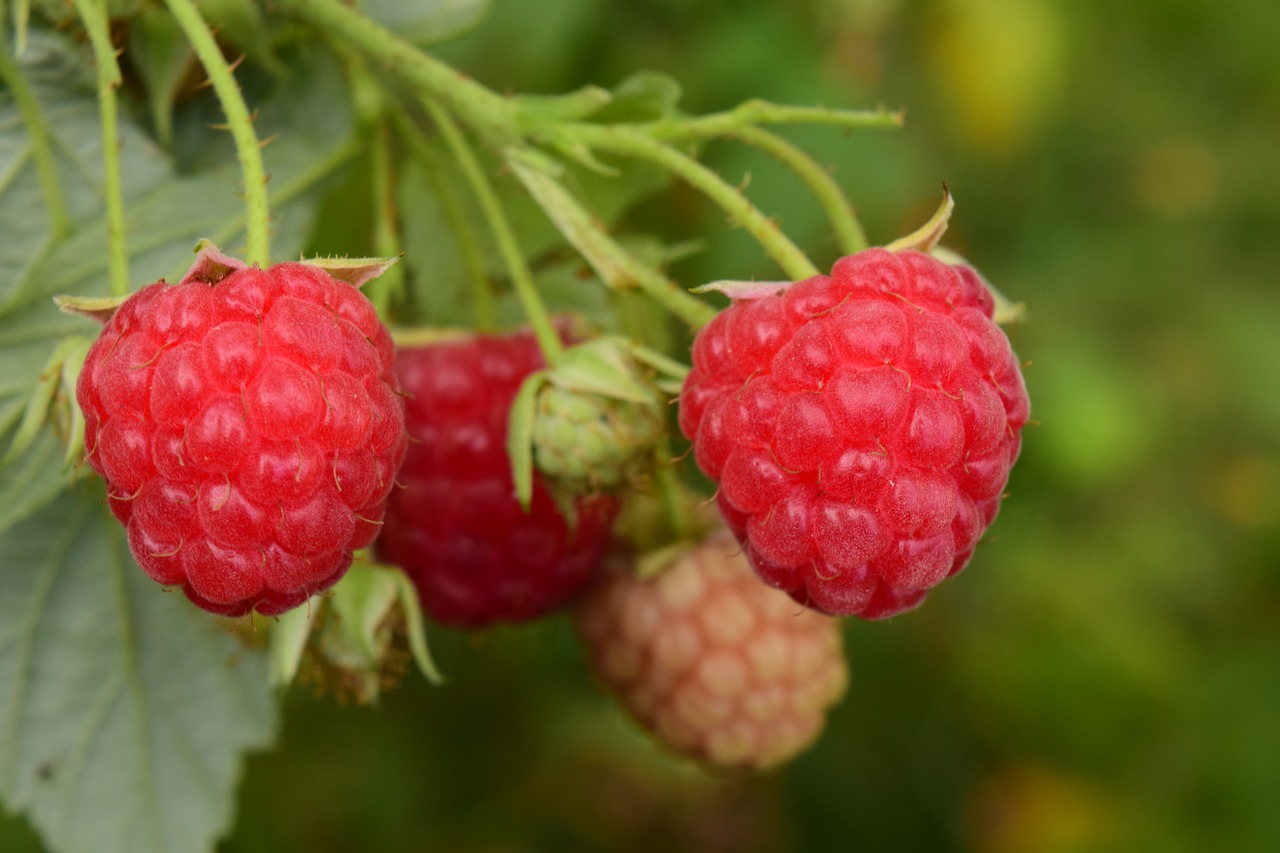How To Grow Raspberries In Pots

Raspberries are very healthy and delicious fruit. Raspberries are a great choice because the combinations in which they can be used are infinite, and they are no less tasty when they freeze also. So why don’t you try to grow them in your home…
Raspberries are planted any time between November and March, provided the soil is not frozen or waterlogged. They are normally sold as dormant canes. To begin with, choose the right kind of raspberry you want to plant. There are two groups of raspberries, those that are harvested in the summer and those harvested in the fall. Those that harvested in the summer have a big boost in late summer. While the fall ones, they bring their fruits twice a year, once in the early fall and next year in the early summer. Raspberries come in three colors, most famous red, then black and yellow. Red raspberries are the easiest to grow, because they are more resistant and stronger.
Raspberries like fertile, well drained soil in a sunny spot. They will tolerate shading but you’re unlikely to get as much fruit as raspberries growing in full sun. Summer-fruiting raspberries will need supporting by a fence, wall or other type of framework as they can grow to 1.5m tall. Autumn-fruiting raspberries are normally fine without a support.
If you live in an outstandingly cold place or a place that has sharp cool winters your raspberry plant won’t not survive long in a container. This happens in light of the fact that they don’t have the protection of the (underground) ground around the roots to keep them hotter. The container will freeze more rapidly and more unequivocally than the ground soil will. On the off chance that you are utilizing a raised bed or expansive container then it will probably be better for the plants.
Raspberries can successfully be grown in containers on the patio as long as the container is of a reasonable size about 60cm (24in) diameter. Fill your container with a soil based compost as this will add stability to your container and won’t dry out as quickly as multi-purpose compost . Plant 6 raspberry canes around the edge of the container and gently firm them in and water them. As with all patio plants make sure the compost doesn’t dry out and feed your raspberries regularly with a high potash fertiliser throughout the growing season to encourage lots of fruit. After 3 years it’s best to plant your container raspberries in the ground.
Care for the raspberries
Raspberries require nourishing in the spring to keep up a decent crop all through the season. Mulch around the sticks with well rotted manure (be careful not to cover the sticks) or apply a balanced fertilizer and after that mulch with fertilizer to help keep the roots moist in dry climate. It’s also vital to water them amid dry climate for the best crop. At the point when the plants begin to set fruit it’s prudent to cover them with net to keep the birds from eating your harvest.
 It is also important to prune your raspberries. Knowing when to prune raspberries is truly extremely simple! All you need is a good pair of secateurs and some gardening gloves to protect against thorns.
It is also important to prune your raspberries. Knowing when to prune raspberries is truly extremely simple! All you need is a good pair of secateurs and some gardening gloves to protect against thorns.
Pruning autumn-fruiting raspberries – these are the least complex to prune. In late winter (February) prune every one of the sticks to ground level before development starts. The plants will fruit on new growth.
Pruning summer-fruiting raspberries – these produce fruit on one year old sticks. In autumn chop all sticks down to soil level that bore fruit during the summer. To help with pruning summer raspberries, it might be worth marking the fruiting sticks during the summer so you can recognize these and the new season’s sticks (new season’s sticks are lavish and green). Tie in 6-8 of the most grounded new sticks and evacuate the rest. The new sticks ought to be separated out around 10cm (4in) separated on their support to permit each stick however much light and air as could be expected.
You will know when raspberries are prepared to harvest as they will effortlessly fall off the plant when tenderly pulled. Once reaped, raspberries don’t keep for long so have a go at freezing some for later use by spreading them on a plate and putting in the freezer. The frozen raspberries can then be moved into freezer bags.


